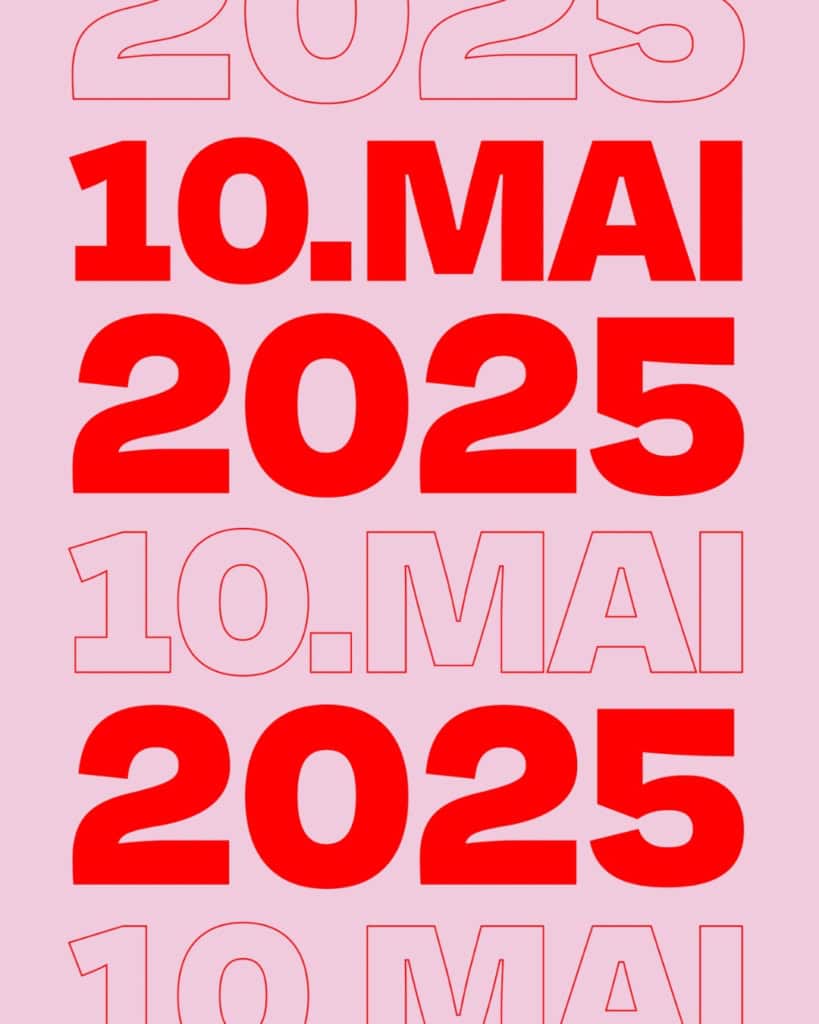On May 10, 2025, we will gather as a hundred thousand mothers in front of the Brandenburg Gate to send a clear signal: for visibility, for justice and, above all, for an end to the political invisibility of mothers, daughters and grandmothers.
Whether migrant, queer, black, disabled, whether FLINTA* people with care responsibilities, working-class moms, single parents, mothers of choice, biological or emotional mothers - we all count because there is more that unites us than divides us: the systemically relevant but systematically ignored care work, the sell-out of education, time and self-determination, the overexploitation of female autonomy under the guise of normality.
Prof. Dr. h.c. Jutta Allmendinger has made it clear: we are experiencing a re-traditionalization of gender roles - not just since the pandemic, but as a permanent political omission.
And because self-determination is not a national issue, but a global struggle, the artist Faravaz Farvardin brings it to the stage with every note of her voice - her voice, once banned in the Iranian underground, will be audible to all at the Brandenburg Gate.
The fact that mothers with a history of migration are always considered "unable to integrate" when they are deemed "unable to perform" is no coincidence - it is politically intentional. It doesn't matter how many decades they have helped, nurtured and supported this country. In a system that values people according to their ability to work, care loses its social value. Time remains a luxury - but only for those who can buy help. "Domestic services" - a euphemism for the capitalist exploitation of women's time.
Like a phoenix, mothers are capable of so much - just like Serpil Unvar. Even in what was certainly the greatest struggle of her life, after the loss of her son Ferhat, she created a memorial from the ashes: the education initiative that bears his name - for justice, against racism, for equality for all people through education.
She is not just her wife - she is her mother.
On this day, we will embark on a programmatic journey through the phases of life that affect us all - and through which mothers accompany us: from birth through childhood, adolescence and adulthood to old age.
Mothers are often invisible, too often overburdened and overheard, and yet - day after day - they carry this society: organizing with their heads, caring with their hands, fighting for a better world with their hearts and minds. These phases will be made audible and visible on May 10 - in speeches, in sounds, in performances and discussions.
Included are voices and sounds that move, remind and rouse:
- Faravaz Farvardin - she raises her voice, which is banned in Iran - at the Brandenburg Gate for all to hear.
- Shereen Adam & Lavon - they open up the space for a new, feminist sound language. More is yet to be revealed.
- Claude De Demo in conversation with Prof.in Dr. h.c. Jutta Allmendinger - "Theater or reality?": a stage moment inspired by Mareike Fallwickl's play Und alle so still, in which art and analysis, emotion and system criticism intertwine.
- Serpil Unvar - as a voice of remembrance and the future, as a mother, activist and encourager.
⸻
We make the structural crisis in childcare visible.
We dismantle the fairy tale of freedom of choice where there are no real options.
We expose the hypocrisy of a system that needs labor migration but wants to deport people after decades - because they "can no longer perform".
We demand self-determination - in paragraph 218, in education, in care. As a human right.
Migration is not the mother of all problems - it is the social and legal framework conditions that turn people into problems, cement inequality and prevent participation.
These are questions that concern us all and perspectives that interweave to form a picture: Motherhood in all its forms - as biography, as responsibility, as a political place, as a shared heritage and a shared future.
